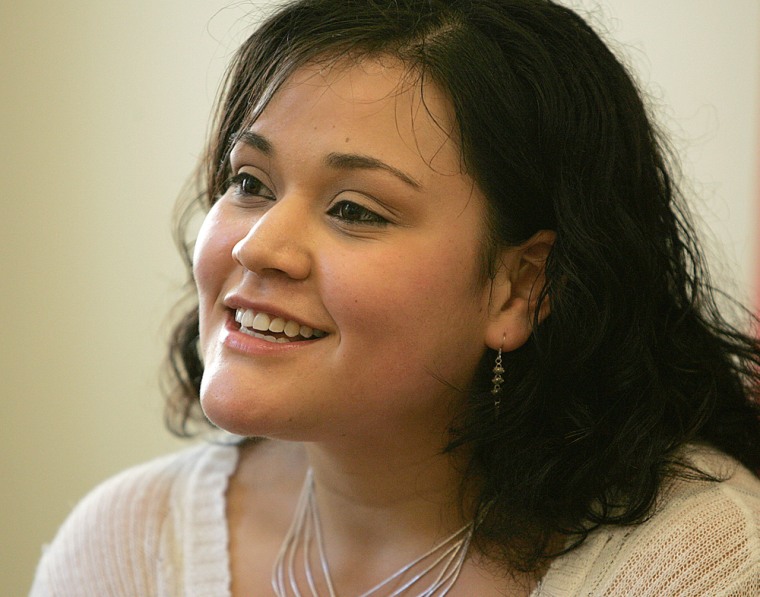Angela Fillingim grew up knowing she had been adopted as a baby during El Salvador's bloody civil war. But it wasn't until she took a high-school Spanish class that she really began wondering about her past.
Was she an orphan? Was there a family she had never met living far away?
The answers for Fillingim and others searching for lost relatives may lie in a new DNA database created by the California Justice Department and the Human Rights Center at the University of California at Berkeley to reunite the shattered families of El Salvador.
"It's just a new experience to think, 'Well, OK, I have another family, I have another mother,'" Fillingim said Thursday. "I need to meet them, not only for myself but also for them, and to embark on this other part of my life."
Hundreds of children disappeared in El Salvador during the country's 1980-92 civil war, some stolen, some voluntarily put up for adoption.
The DNA Reunification Project was started by Human Rights Center Director Eric Stover and the Rev. Jon Cortina, co-founder of the Salvadoran missing children's group Asociacion Pro-Busqueda de Ninas y Ninos Desaparecidos.
The database contains DNA from parents who are looking for their long-lost children. Next month, it will be turned over to Pro-Busqueda, and workers will concentrate on trying to collect DNA from children adopted by families all over the world, a difficult and delicate task.
It is not the first time DNA has been used to reunite families separated by war. It has been done in North and South Korea and in Guatemala.
So far, there have been more than 700 requests from families in El Salvador whose children are missing. Of those, 158 families have been reunited, though not necessarily through DNA.
Pro-Busqueda workers following a paper trail have located a woman they believe is Fillingim's mother; DNA results are pending. Fillingim, a 21-year-old student studying sociology at UC Davis, said it appears her mother voluntarily put her up for adoption.
Getting the answers to her questions is both exciting and a "little bit scary," said Fillingim, whose adoptive parents have supported her search.
"I realize that I can't change the past," she said. "But I can be grateful for all the opportunities that I have now."
